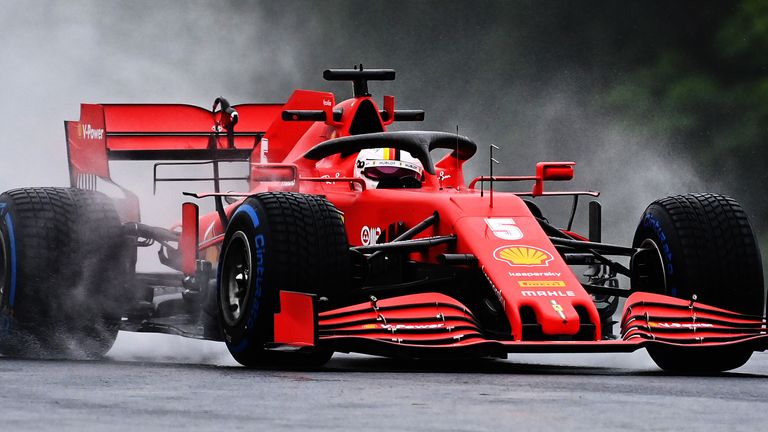Visits: 10

Mark Hughes
F1 Expert
How Vettel’s important strategy call from the cockpit in the Hungarian GP underlined another area of long-term improvement required for Ferrari as part of their wider rebuild towards 2022
Last Updated: 30/07/20 12:02pm


John Elkann, the ultimate boss of the group which controls Ferrari, said in his recent interview that part of the reason the Scuderia decided not to renew Sebastian Vettel’s contract was that the team is in the process of a long-term rebuilding project – and to do so around a long-established older champion was not the appropriate way.
The rebuild will instead be made around the younger talents of Charles Leclerc and Carlos Sainz.
But the early laps of the Hungarian Grand Prix showed the value of the experienced old hand. Vettel rescued his race by overruling the pitwall’s choice of tyre compound as everyone prepared to come off intermediates and onto slicks. Leclerc meekly accepted the team’s choice and his race was consequently ruined.
The fact that Ferrari came away from Budapest with points for a sixth-place finish was down to Vettel’s experienced call.
‘Box for softs’, he was instructed. After a couple of seconds of pondering as he made his way in, Vettel responded with, ‘Softs? Mediums, don’t you think? For the graining.’ Ferrari acquiesced to his choice and thereby at least partially dodged a bullet for, as Leclerc subsequently demonstrated, the soft was hopelessly unsuited to the track, badly graining its left front around the Hungaroring’s long turns in cool conditions.
Despite losing time in the pit lane traffic and exiting behind Leclerc, Vettel finished five places ahead of his team-mate, who was unable even to score a point.
The logic of going onto the soft was that it would be a faster tyre in cool, damp conditions. But Friday running – and all previous Hungaroring running with this tyre in previous years – had shown that the usual logic was made obsolete by the graining problem. It may have been faster for the first lap but thereafter was always going to be a deeply problematic tyre.
During Vettel’s time at Ferrari he has often been heard to be directing operations from the cockpit. Last year at Spa during qualifying was one notable example when he was even instructing how the car should be moved in the pitlane, so as not to damage the floor.


Although Eklann admitted that the team has weaknesses in its aerodynamic and vehicle dynamic departments, he didn’t highlight a weakness in its pitbox operations that has long been evident. Vettel has frequently become the de facto on-the-hoof strategist as an experienced and highly intelligent driver. This won’t have been a role he has sought, but one in which he has found himself.
So does this mean that letting Vettel go is a mistake? Not necessarily. It means that the pitlane operations of the team needs to be seriously upgraded, so as not to need the experience of a driver to rescue it from bad decisions.
If letting Vettel go is part of the rebuilding process Elkann was talking of, then that rebuild surely has to include a root and branch review of every facet of the team and in particular its track operations.




